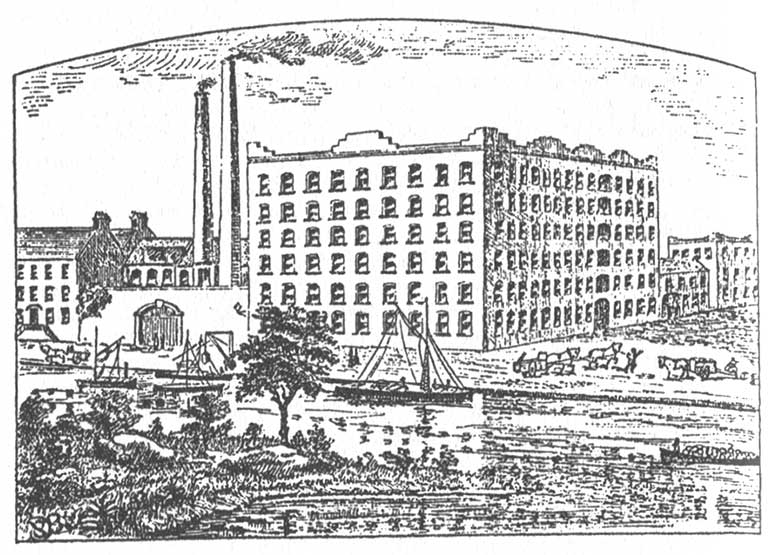Messrs. Thomas Murphy & Co., Clonmel - Book of County Tipperary, 1889
About “The Book of County Tipperary,” 1889
George Henry Bassett produced 7 Irish county directories in the 1880s: Antrim, Armagh, Down, Kilkenny, Louth, Tipperary and Wexford. Each provides useful history of the respective counties as well as lists of office holders, farmers, traders, and other residents of the individual cities, towns and villages.
The directories are naturally an invaluable resource for those tracing family history. The Book of County Tipperary is the first of these to be made available on libraryireland.com, with its own search page. However, there are a few points to bear in mind.
- This online version is designed primarily as a genealogical research tool and therefore the numerous advertisements in the original book, many full page, and quite a few illustrated, have been excluded.
- The text has been proofed with due care, but with large bodies of text typographical errors are inevitably bound to occur.
- Be aware that there were often inconsistencies in spelling surnames in the 19th century and also that many forenames are abbreviated in Bassett’s directories.
With respect to the last point, surnames which today begin with the “Mc” prefix, for example, were often formerly spelt as “M‘,”. For a list of some of the more common forename abbreviations used in the directory, see Forename Abbreviations.
To enjoy the rich variety of advertisements, confirm accuracy of the entries, or have a printed record of a family member, obtain an original or facsimile copy of The Book of County Tipperary.

The brewery illustrated on the opposite page is one of the oldest and most extensive in Ireland, out of Dublin. Its buildings occupy about two acres, and form a striking accessory to the picturesque effects of the River Suir at Clonmel.
The brewery was first built in 1798 upon a most substantial basis, and was enlarged from time to time to keep pace with the increased demand resulting from a growth of popularity. In 1829 it was destroyed by fire, and was rebuilt in the castellated style in which it is now seen. From that period to the present day improvements have been introduced into the several departments to keep pace with the progress of inventive skill. As a result it would not be easy to find a concern more perfectly organized and equipped.
Malt and hops only are used in brewing. There are three large malting houses. A portion of the supply of barley is procured in the local market, but the greater part is raised in the Horse and Jockey district, near Thurles.
Messrs. Thomas Murphy & Co. are ale, stout and porter brewers, and employ about two hundred people in furtherance of their enterprise. The ale and stout are exported to England and Wales, and are supplied to regimental canteens. The Irish counties to which they are sent, in addition to Tipperary, are Waterford, Kilkenny, Cork, Limerick, Clare and Galway. An agency is maintained at Belfast for the Northern Counties.
The casks are made on the premises, and the department from which they are turned out contains a saw mill, and is not the least interesting of the features. At the Dublin Artisans’ Exhibition in 1885, a first-class certificate was awarded for the excellence of the cooper work sent from here. There is also a department for building floats, carts and cars of the regulation pattern.
The water for brewing is obtained from two artesian wells, one seventy feet and the other thirty feet deep.
After many changes the firm adopted the style of Thomas Murphy & Co., in 1838. In that year Mr. Thomas Murphy and his brother, John M. Murphy, were partners. Mr. John M. Murphy died in 1849, and Mr. Thomas Murphy the following year. The sons of the former, Messrs. Samuel and Benjamin, succeeded. Samuel died in 1854, bequeathing his share to his bother, John, who with Benjamin were then the partners. Mr. Benjamin Murphy died in 1880, and Mr. John in 1886, leaving the concern in charge of Mr. Charles Ffennell, trustee and manager, for the benefit of his nephews, Thomas, George F., and John M. Murphy, minors, sons of Mr. Benjamin Murphy.
